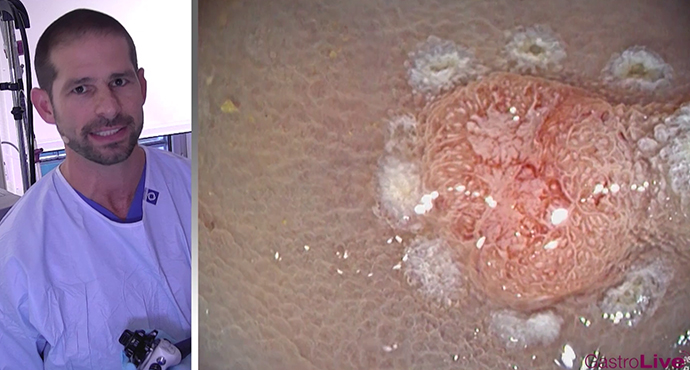Update on Adverse Events With Colorectal Endoscopic Full-thickness Resection
Douglas K. Rex, MD, MASGE, reviewing Zwager LW, et al. Gastrointest Endosc 2022 Nov 18.
This study updates complication rates associated with the full-thickness resection device (FTRD) from a combined Dutch and German registry, with 1892 procedures performed between July 2015 and March 2021.
The overall perforation rate was 2.5%, with 57.4% immediate (n=27) and 42.6% delayed (n=20) perforations. Endoscopic closure of perforation was successful in 30% of cases, of which 13 were immediate perforations and one was a delayed perforation.
In 12 of the immediate perforations, the closure was performed with an over-the-scope clip. Immediate perforations could be related to sigmoid rupture from instrument passage, incorrect sequence of clip firing, or clip malfunction. There were 42 severe adverse events requiring surgery, and there was no mortality related to complications. Two surgeries were for severe stenosis, 1 for severe bleeding, 1 for severe pain after resection of a lesion near the dentate line, and 1 for the grasper entrapped in the clip.
Some of the data were incomplete regarding prior appendectomies. According to the Dutch registry, appendicitis without a prior appendectomy occurred in 7 of 33 patients (21.2%) undergoing resection of appendiceal lesions, and 5 of 7 were treated surgically.
There were a total of 65 German centers and 20 Dutch centers involved in the study, with no difference in complications between high- and low-volume centers. The total adverse event rate was 11.3% (n=213), which included the most common events, immediate and delayed bleeding (n=117; of which only one case was a severe adverse event), and 15 cases of postpolypectomy syndrome, which all responded to conservative therapy.

COMMENTThe FTRD procedure has become an important tool in treating colorectal lesions. The occurrence of serious adverse events requiring surgical repair is about 2%, which is significant and substantial but also acceptable, given the extremely low mortality of the FTRD procedure and the ability to frequently avoid surgical resection that would be otherwise required if FTRD were not used.
Note to readers: At the time we reviewed this paper, its publisher noted that it was not in final form and that subsequent changes might be made.
CITATION(S)
Zwager LW, Mueller J, Stritzke B, et al; Dutch eFTR working group and German collaborating centers. Adverse events of endoscopic full-thickness resection: results from the German and Dutch nationwide colorectal FTRD registry. Gastrointest Endosc 2022 Nov 18. (Epub ahead of print) (https://doi.org/10.1016/j.gie.2022.11.005)

